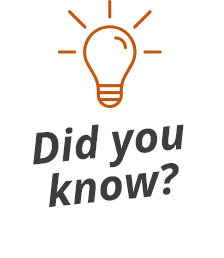How CHPW Supports the Health of Expecting and New Mothers: Q&A with Shanna Widener, Director of Care Management
Expecting a child can be an exciting and scary time. Much of the attention is on preparing and caring for a new child, and a mother’s health often takes a backseat. Shanna Widener, Community Health Plan of Washington’s (CHPW) Senior Director of Care Management, shares how CHPW’s care management team ensures new and expecting mothers have access to the health care and community supports they need to take care of themselves both during and beyond pregnancy.
What is CHPW’s care management team, and how do these individuals support the health of expecting and new mothers?
A: CHPW’s care management team meets members where they are to ensure each member receives high quality care for their unique needs. CHPW case managers have a variety of backgrounds and expertise, having previously served as registered nurses, social workers and mental health professionals. By working with community partners, we help CHPW members navigate the health care system and remove barriers to their health.
In the same way CHPW approaches support for any member with a case manager, we begin working with expecting and new mothers by first understanding where they are in their health journey. Together, we create a health plan to address what’s important to them and their health needs.
Once we have a plan, we get to work connecting them to local organizations, educational information, and general and specialized providers, and breaking down health care barriers. This includes:
- Scheduling transportation to and from appointments for both mom and baby
- Getting medications while pregnant or post-delivery
- Establishing connections to community resources to address all areas and factors that influence health, like housing and food insecurities
- Providing behavioral health services, including emotional support, and social supports through local groups
- Offering prenatal and childbirth classes
What is the biggest problem expecting mothers are facing and how does CHPW address this problem?
A: Support from family, friends and the community is essential for new mothers. Expecting and new mothers often feel isolated for a variety of reasons, so our case managers provide extra support by offering regular check-ins and a vast network of community resources like local support groups.
One example is Nurture® Program, which provides new mothers with a mentor who is a real parent that will check in by text every week from the third trimester through the baby’s first birthday. They help the new mother prepare for parenthood, celebrate their victories, and troubleshoot sleep schedules. By offering ongoing support through a one-on-one approach, Nurture Program and CHPW can ensure expecting and new mothers have the tools they need to manage their health and the health of their child.
What is unique about CHPW’s approach to maternal health?
A: In line with CHPW’s mission, our care management team is community oriented. CHPW case managers are local to the communities they serve, and therefore understand the specific needs of their community members, barriers they may face to receiving care, and sensitivities related to cultural differences.
With a community-based approach, our CHC partners provide members with integrated health care. CHCs have the resources to take care of mothers from the beginning of their pregnancy through the postnatal period, while also providing care throughout both that mother and child’s life.
Additionally, CHPW provides mothers with unique benefits, including gift card rewards for prenatal, postpartum, and well-child checkups through the ChildrenFirst™ Program and a free breast pump that will be delivered to their homes at no cost. Gift card rewards can be used at Amazon, Safeway or Target.
Mothers in underrepresented communities often face greater health disparities. What is CHPW doing to support these individuals?
A: Yes, health disparities do disproportionately affect people in racial and ethnic minority populations in Washington State and across the U.S. To achieve a more equitable health care system, we must first recognize both the health disparities that exist in our communities, as well as the systemic barriers that perpetuate those inequities, particularly for people of color. Our care management team works to approach all new mothers with an equity lens and undergoes regular training on implicit bias within our team and the health system at large.

Implicit Bias
Thoughts and feelings are “implicit” if we are unaware of them or mistaken about their nature. We have a bias when, rather than being neutral, we have a preference for (or aversion to) a person or group of people. Thus, we use the term “implicit bias” to describe when we have attitudes towards people or associate stereotypes with them without our conscious knowledge.
As part of this work, we consider how the social drivers of health (SDOHs) affect new mothers (note: SDOHs are the conditions in the environments where people are born, live, learn, work, play, worship, and age that affect a wide range of health, functioning and quality-of-life outcomes and risks). When speaking to new mothers, CHPW case managers assess the SDOHs that may affect members and connect them with community resources or a CHPW community health worker. For example, if a new mother cannot get to a doctor’s appointment due to a lack of adequate transportation, CHPW or the case manager might connect her with low or no cost transportation resources or suggest a telehealth appointment instead.
How does the care management team help mothers navigate anxiety and their mental health? Postpartum depression?
A: All care starts with each mother, as each mother knows their own health needs best. Our care management team listens and works with new mothers to find the best solutions for their unique mental health needs. To understand if mothers are facing challenges, we ask a set of questions that indicate whether they have symptoms of anxiety or postpartum depression, like the screening questions used by the industry-leading Edinburgh Postnatal Depression Scale. If the screening questions reveal that someone may need support, we work to connect them with resources such as mental health providers, therapists, and peer support.
How does the care management team connect mothers to the right provider?
A: Our case managers help educate expecting mothers on the options for their health team, such as OB-GYNs, midwives and doulas, and then help them to select a provider or providers. While finding the right provider can be challenging for anyone, CHPW makes it easy to find high quality local care with its network of 21 Washington Community Health Centers (CHCs) that operate 190 clinics across the state. These clinics do not turn anyone away based on their ability to pay for care or immigration status.
Learn more
- More information on CHPW’s maternal health services
- Information about Pregnancy & Childbirth
- Read Three Tips for New Mothers: Managing Postpartum Stress & Strengthening Your Mental Health
Shanna is the Senior Director of Care Management at Community Health Plan of Washington and an accredited case manager. She joins CHPW following a career as a registered nurse focused on women’s health, including work in prenatal education, the OB/GYN clinic, and the antepartum unit.

